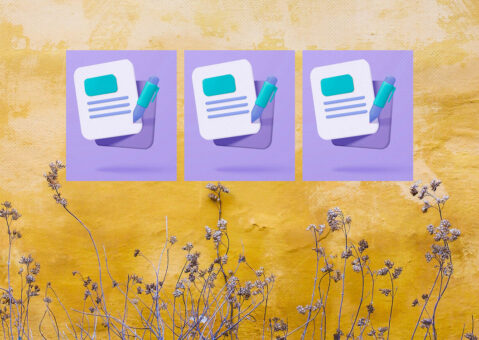The ERC research project P2P Models aims to use blockchain-driven Decentralized Autonomous Organizations (DAOs) to boost a Collaborative Economy which is decentralized, democratic and where profits are distributed.
A Monopolistic Collaborative Economy
The Collaborative Economy is not what we were promised. Inspired by Wikipedia, it emerged from the idea of peer-to-peer networks of citizens, sharing and collaborating for the common good, in every field. However, today we can observe how digital monopolies concentrating data, resources and power are the new normal. Instead of decentralizing the power of traditional institutions, we can see how the platform economy is creating larger than ever monopolies: Uber is larger than any taxi company, Airbnb than any hotel chain, Google than the traditional providers of infrastructure, and Facebook governs more than 2 billion users. This market dominance has of course some benefits on the services they provide, but it is not without serious drawbacks, in a context where scandals are common. E.g. terrible labor practices in Uber or Deliveroo, privacy-hindering services by Google, regular collaboration in mass surveillance programs by most major companies as revealed by Edward Snowden, or Facebook’s Cambridge Analytica mess. Even worse, any new start-up aims to either be absorbed by these giants, or become the new monopoly in an un-platformized field. Is this science-fiction pseudo-dystopian scenario all we can expect? What would it take to change the rules of this nasty game?
The P2P Models Vision
A new research project has the ambitious aim of facilitating the emergence of a different ecosystem. P2P Models has a simple yet challenging research question: can we build online platforms in a different way? Can we build Collaborative Economy platforms which are decentralized, so there is not a single owner of the whole infrastructure? Can we build platforms where the decision-making is democratic, involving their users, which may become empowered? And yet, can we make such platforms in a way in which the profits are distributed across the users?
“
P2P Models is a 1.5M€ 5-year interdisciplinary research project, funded by the European Research Council (ERC) and awarded to Samer Hassan, a researcher at both the Berkman Klein Center for Internet and Society at Harvard University, and GRASIA at the Universidad Complutense de Madrid in Spain. The growing Madrid team comprises computer scientists, social scientists, activists and hackers.

New Governance
& Economic Models
The project will harness the potential of the blockchain to tackle these issues. However, instead of focusing on Finance and crypto-currencies, the project will explore the potentials of Decentralized Autonomous Organizations (DAOs). The idea is to replace the traditional online platforms like Airbnb, which relies on a centralized server infrastructure controlled by a single actor, with the serverless DAOs hosted and executed in a decentralized blockchain network. Such DAOs may embed the rules for the users to interact with each other in a peer-to-peer manner. Thus, we can easily imagine a decentralized Airbnb developed that way. Moreover, users could vote which changes they would like to see in their DAO-platform, empowering them in the process. Then, we could see an ecosystem of multiple decentralized Airbnb’s, with different features depending on what their community has decided, e.g. some totally anonymous, others with a high insurance in case something goes wrong, others adapted to a local culture. Without the strong dependency on platform owners, profits could be more distributed and users rewarded in multiple forms (e.g. cryptocurrency, votes, reputation, shares). In such ecosystem, interoperability provides a competitive opportunity, since the users, and even their reputation, are shared across the ecosystem (sharing the same blockchain), instead of locked in a single platform… allowing new start-ups to reach faster critical mass, sharing users and even components with other companies. In such ecosystem, barriers to entry are lower, competition is higher, and dominant positions are harder to maintain.
If that vision is to be realized, at least partially, the building of DAOs is critical. Thus, the project will build a framework and tools to enable the modular construction of DAOs, especially those providing Collaborative Economy features. Therefore, the project will build “lego’s” or building blocks, embedding different features, so that developers may combine them to deploy their new platform. Being a fully free/open source platform, anyone could build their own building blocks for their specific needs, and if desired contribute them for others to use.
In the same way, other series of building blocks will embed governance models and economic models, focusing on democratic and redistributing approaches. The characteristics of the blockchain, and in particular smart contracts, enables the automated execution and enforcement of rules in a decentralized context. Thus, the project will allow user communities to be governed, at least partially, by explicit rules embedded in the code. This may allow democratic rules that make these communities more inclusive and equal, e.g. taking into account gender, minorities or low-income profiles.
Furthermore, the blockchain, through its tokenization, facilitates the distribution of value. However, tokens may be much more than crypto-currencies, alternatively represent equity, decision-making power, non-transferable reputation, or even property ownership digital certificates. This may enable the emergence of new business models, where user participation is rewarded.
P2P Models will perform social research, codesign pilots with communities, build a testbed for researchers… all with the aim of moving from an ecosystem controlled by Silicon Valley centralized monopolies to an open interoperable ecosystem. Today, with the help of the blockchain, there is a window of opportunity to change the rules of the game. Will the project manage to avoid the dystopia.
Text originally published at Open Access Government. Available here.
“Efficient use of resources”
We cannot ignore, as Samer Hassan states, the accumulation of capital, data and market share that is being carried forward by the platform economy and wrongy called collaborative economy.
Silvia Díaz-Molina is a researcher at our project specialized in the platform economy and its alternatives with an anthropologic and feminist focus. Silvia states that “it is difficult for the collaborative economy to achieve a change of model when it is immersed in the market economy. It plays its own rules and language and ends up reproducing the constitutive inequality of the neoliberal-capitalist system. Airbnb’s approach fits in perfectly with the dislocated and refined financial logic behind the expulsions that take place in global cities”.
What they told us that was going to be a new kind way of sharing resources is, today, another way of extracting value from the work of many people, with the aggravating factor of practically no contribution to the public system. “There are many derived effects. This type of capitalist extractionist platform has economic models of tax evasion and does not contribute wherever it operates. We think that Uber put at risk labor rights, but that’s not all, this economic model questions the welfare state as a whole,” warns Fuster.
It is necessary to carry out actions that propose alternatives to the platform model through collective ownership, democratic governance models, ownership of infrastructures and servers and exchanges, this time between equals. Fuster is still hopeful: “We can open up a horizon of economic democratisation that we did not have until now. The collaborative economy can point to the scalability of the social and solidarity economy, of cooperativism,” she says. According to the expert, the strength lies in the organization of cities to fight together against large corporations. The collaborative economy “puts on the board the role of cities because these companies are concentrated in them, but in our case the regulatory powers of the platforms are not in the cities, but in the European Union. It is necessary to revise a system of multigovernment to give more weight to the cities”. Likewise, she hopes for a platformization of local administrations “in the collaborative sense. They could adopt collaborative dynamics within the institutions supported by digital platforms, for example, in the case of Decidim, which is a digital platform used to decide policies in Barcelona city and it is a good case of how the platform economy can provide resources to improve public innovation and democratize institutions”.
Nick Srnicek does not see that there is such a clear cooperative alternative to the model. He proposes “investing the state’s vast resources into the technology necessary to support these platforms and offering them as public utilities. Maybe we should to collectivize the platforms”.
AUTHOR






